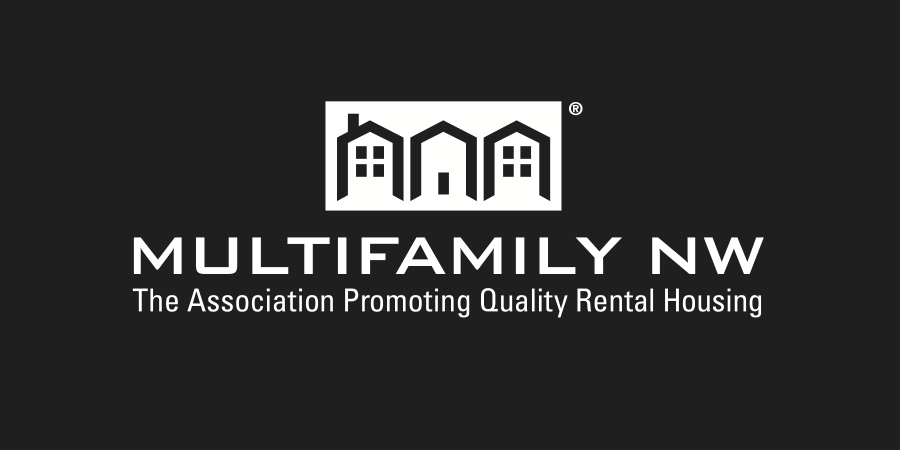From Rental to Riches: A Property Management Blueprint

From Rent to Wealth: A Property Management Game Plan
Becoming a landlord isn’t always the result of long-term planning. For many, it happens by accident—maybe you inherited your childhood home, moved for a new job but couldn’t sell, or decided to keep your starter home as a rental after buying your dream house. Suddenly, you're in charge of a property and a tenant, and the role of “landlord” is added to your resume—whether you feel prepared for it or not.
This scenario is increasingly common, and while it may feel overwhelming at first, accidental landlords are in a unique position to turn an unplanned opportunity into long-term wealth. With the right approach and resources, a single rental property can become the foundation for financial security—and even future investment expansion.
In this detailed blueprint, we’ll explore how to transform a rental property from a side responsibility into a reliable income-generating asset. Along the way, we’ll show how partnering with a professional property management company can reduce stress, improve tenant outcomes, and increase your bottom line.
Chapter 1: Understanding the Power of a Rental Property
Accidental landlords often underestimate the potential of their rental property. Whether you’re holding onto an inherited home, keeping your old place while moving into a new one, or leasing a property you’ve outgrown, the opportunity to turn it into a source of wealth is substantial. Real estate has long been regarded as one of the most reliable avenues for building long-term wealth. Here's why:
Steady Monthly Cash Flow
The immediate benefit of being a landlord is the consistent cash flow. Rent payments, once collected, can cover your mortgage, taxes, and other expenses, leaving you with a profit each month. Even more impressive, when you pay down your mortgage, your equity increases, and your overall cash flow strengthens as the property value appreciates over time.
Appreciation Over Time
Unlike most investments, real estate typically appreciates over the long term. Depending on the market, your property may increase in value, allowing you to sell for a significant profit years down the line. This increase in value is often compounded by regular maintenance and smart upgrades.
Chapter 2: Setting Clear Financial Goals
Without clear goals, accidental landlords can easily fall into the trap of reactive management—responding to problems as they arise without any long-term strategy. To turn your rental property into a source of wealth, you need to define what success looks like for you. Establishing clear financial objectives will give you direction and allow you to make informed decisions about your property.
Ask yourself these key questions:
- What’s your ultimate goal for the property? Is it to generate a steady rental income? To build equity over time? Or perhaps to sell the property after a few years for a large profit?
- How much time are you willing to invest? Will you handle the day-to-day management or would you prefer to hire someone to handle the heavy lifting?
- How does this property fit into your overall wealth-building strategy? Are you planning to acquire more properties in the future, or is this your only rental?
Clarifying these goals will allow you to create a roadmap for managing the property and determine when it makes sense to bring in professional help. For many accidental landlords, a property management company can provide valuable guidance in aligning your property with your long-term wealth strategy.
Chapter 3: Pricing the Property Correctly
Pricing your rental property is one of the most critical decisions you’ll make. Overpricing can result in prolonged vacancies, while underpricing means losing potential income. In both cases, you risk harming your investment.
How to Set the Right Rent Price
Setting the right rent price is a balance between maximizing your cash flow and ensuring your property remains competitive in the market.
- Conduct a Market Analysis: Research similar properties in the area, considering factors like square footage, location, amenities, and condition. A well-priced property will attract the right tenants quickly, whereas an overpriced property can remain vacant longer.
- Consider Seasonal Demand: Rental prices tend to fluctuate based on the time of year. For example, demand may be higher in the summer, especially in university towns or cities with seasonal workforces.
- Account for Property Features: Upgraded kitchens, high-quality flooring, and outdoor space can command a higher rent. Similarly, the condition of your property—newly renovated versus needing work—should influence pricing.
Property management professionals can assist in conducting a comprehensive market analysis to determine the ideal rental rate for your property, helping you optimize rental income while minimizing vacancy.
Chapter 4: Preparing the Property for Tenants
To attract high-quality tenants and secure a steady stream of rental income, your property needs to be in excellent condition. A rent-ready property not only enhances tenant satisfaction but also reduces the likelihood of future maintenance issues.
Steps to Prepare Your Property for Rent:
- Ensure Safety and Security: Make sure the property complies with local safety regulations by installing smoke detectors, carbon monoxide alarms, and functioning locks on all windows and doors.
- Deep Clean the Property: A thoroughly cleaned property is one of the easiest ways to impress potential tenants. Clean carpets, freshly painted walls, and sparkling kitchens and bathrooms will make a lasting impression.
- Check All Systems and Appliances: Ensure that plumbing, HVAC systems, electrical wiring, and appliances are in good working order. A property inspection can help uncover hidden issues that need attention before leasing.
- Boost Curb Appeal: First impressions count. Simple landscaping improvements, a freshly painted front door, and trimmed shrubs can elevate the property’s appeal, attracting quality tenants.
Working with a property management company can help streamline the preparation process. They can organize inspections, make necessary repairs, and even assist with upgrades to improve the property's rental value.
Chapter 5: Tenant Screening – Your First Line of Defense
The quality of your tenant can make or break your rental experience. While screening may feel like a daunting task, it’s crucial for protecting your property, ensuring timely rent payments, and avoiding costly eviction proceedings.
Why Tenant Screening is Essential:
Tenant screening is your first line of defense against problematic renters. With proper screening, you can reduce the risk of late payments, property damage, and eviction.
- Credit and Background Checks: Reviewing a potential tenant’s credit history helps assess their ability to pay rent on time. Background checks ensure they don’t have a history of eviction or criminal activity.
- Income Verification: Requesting proof of income ensures the tenant can afford the rent. A common guideline is that a tenant’s income should be at least three times the monthly rent.
- Prior Landlord References: Previous landlords can provide insights into the tenant’s behavior, payment history, and upkeep of rental properties.
- Fair Housing Compliance: It's essential to follow fair housing laws when screening tenants. Discriminatory practices can result in legal trouble and financial penalties.
Property management companies specialize in tenant screening, ensuring you’re compliant with all local laws while also selecting tenants who are likely to be responsible and pay on time.
Chapter 6: Lease Agreements That Protect You
A well-drafted lease agreement is your legal safeguard as a landlord. It outlines both parties’ rights and responsibilities, ensuring everyone is on the same page and reducing the likelihood of disputes.
Key Elements of a Strong Lease Agreement:
Clear Rent Terms: The lease should clearly state the amount of rent, the due date, and the consequences for late payments.
- Security Deposit: The lease should outline the amount and conditions for the return of the security deposit at the end of the tenancy.
- Maintenance Responsibilities: Define who is responsible for property maintenance and repairs. This helps avoid confusion if issues arise.
- Tenant Conduct: Include clauses that address noise levels, parking regulations, and any restrictions on smoking or pets.
- Legal Provisions: Ensure your lease includes terms related to the right of entry, lease termination, and eviction procedures.
When working with a property management company, they often provide a lease template that complies with state and local laws. These agreements are regularly updated to account for any changes in landlord-tenant law, offering you legal protection and peace of mind.
Chapter 7: Maintenance, Repairs, and Emergency Response
Property maintenance is a never-ending responsibility for landlords. Whether it's handling routine issues or responding to urgent requests, you must be prepared to keep the property in good condition. Timely maintenance not only ensures tenant satisfaction but also helps avoid costly repairs in the future.
How to Handle Maintenance and Repairs:
- Routine Inspections: Schedule regular inspections to catch small issues before they become major problems. This proactive approach can save you significant money in the long run.
- Build a Vendor Network: Having reliable contractors, plumbers, and electricians on call ensures quick and efficient service when repairs are needed.
- Emergency Protocols: Tenants will occasionally face emergencies—whether a broken furnace in the winter or a burst pipe. A 24/7 emergency contact number should be provided to tenants to ensure quick resolution.
- Preventative Maintenance: Simple maintenance tasks like changing air filters, cleaning gutters, and servicing HVAC systems regularly can help avoid costly repairs down the line.
Property managers are well-equipped to handle these responsibilities. They can respond to tenant requests promptly, work with trusted vendors to perform necessary repairs, and keep your property in top shape without you lifting a finger.
Chapter 8: Rent Collection and Financial Tracking
Consistent rent collection is the key to maintaining cash flow and profitability. Unfortunately, collecting rent can become uncomfortable, especially if tenants are late or have issues with payment methods.
Effective Rent Collection Strategies:
- Online Payment Options: Using online platforms allows tenants to pay rent easily and on time. Automated reminders can help reduce late payments.
- Late Fees: Establish a clear policy for late fees to encourage on-time payments. This can be outlined in your lease agreement.
- Rent Receipts: Provide tenants with receipts for every payment, whether it’s made online or in person. This ensures both parties have a record of transactions.
Keeping accurate financial records is just as important. Tracking income, expenses, and any deductions can help when it’s time to file taxes or assess the profitability of your rental property.
Working with a property manager can simplify this process. They typically have systems in place to collect rent, track payments, and manage your finances efficiently.
Chapter 9: Handling Tenant Complaints and Disputes
As a landlord, you’ll inevitably face tenant complaints and disputes. Handling them efficiently and professionally can preserve your relationship with your tenant and maintain your property’s reputation.
Strategies for Handling Disputes:
Open Communication: Foster an environment where tenants feel comfortable voicing their concerns. Respond quickly and courteously to resolve issues.
- Document Everything: Always keep a written record of any conversations, agreements, or disputes. This can help if legal action is needed.
- Mediation: In some cases, it may be worth bringing in a third party to mediate a dispute before it escalates.
Chapter 10: When to Hire a Property Management Company
At some point, accidental landlords often reach the realization that they need professional help to manage their property effectively. Hiring a property management company can save you time, reduce stress, and ensure your property remains profitable.
Why Consider Hiring a Property Manager?
- Expertise: Property managers understand the ins and outs of rental property management, from legal requirements to market conditions.
- Time Savings: A property manager handles everything—from marketing the property to screening tenants, managing repairs, and handling disputes—so you don’t have to.
- Maximized Profits: With their experience, property managers can optimize rent prices, reduce vacancies, and implement maintenance programs that increase the long-term value of your property.
Conclusion: Your Blueprint to Rental Wealth
Becoming a landlord may have started as an unexpected turn of events, but that doesn’t mean it can’t evolve into a rewarding and profitable venture. With the right approach, rental properties can transform from a mere obligation into a solid investment strategy that generates long-term wealth.
By leveraging the expertise of a professional property management company, accidental landlords can ensure that their properties are well-maintained, tenants are satisfied, and financial goals are met. From optimizing rent pricing to handling legal compliance and maximizing profitability, these experts provide the support needed to take the guesswork out of property management.
With the right team in place, what began as a surprising responsibility can become a steady income stream, allowing you to focus on other aspects of your life or expand your investment portfolio. From rental to riches isn’t just a dream—it’s a tangible reality when you have the right tools, knowledge, and partners to guide you on your journey.










